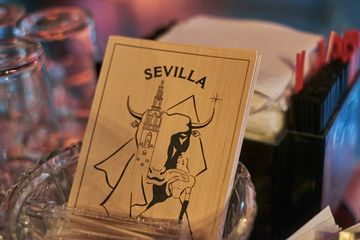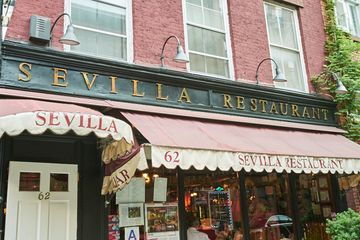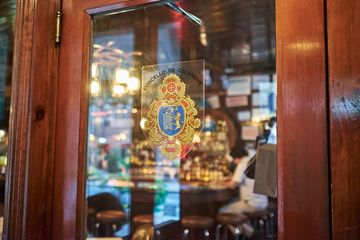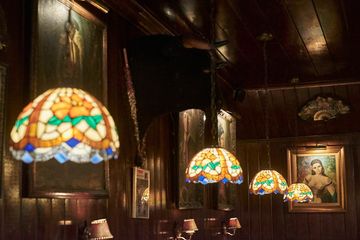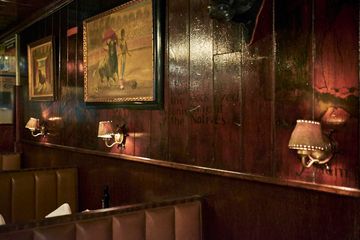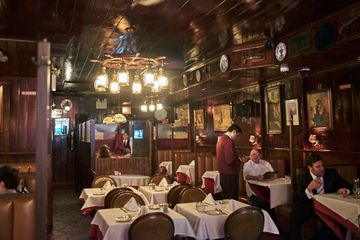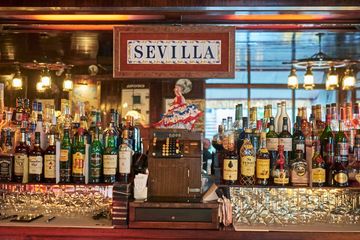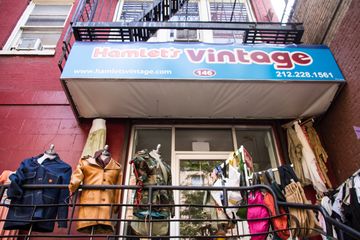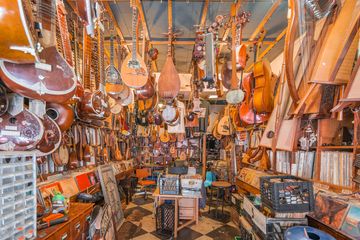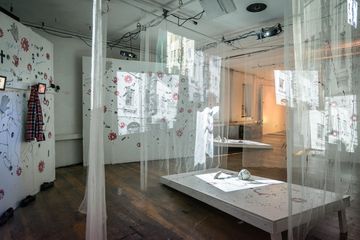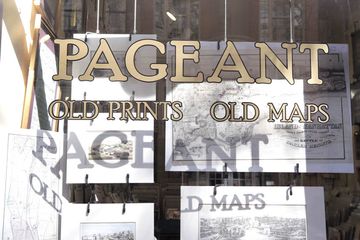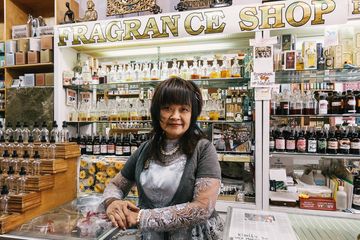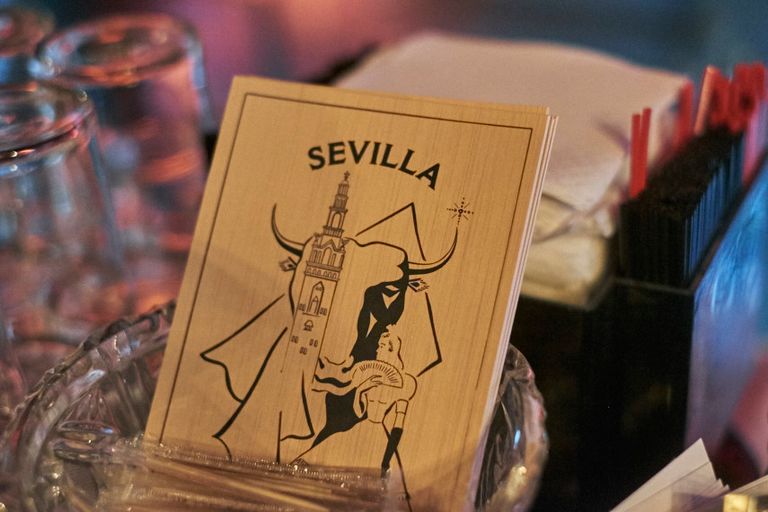
When Bienvenido Alvarez and his wife left the city of Ourense in 1973, they did not know when they would see their children again. Looking for a better life in Manhattan, where Bienvenido’s brother worked at Sevilla, the couple arrived to the sight of the Twin Towers being built. Bienvenido’s American life grew in tandem with the skyscrapers: He worked as a waiter in the mornings and learned English in the afternoons. After months of this hard work he and his brother, Jose, bought Sevilla, which remains open seven days a week, just as it did years ago. It was not until 1976 that Bienvenido and his wife were able to bring their children to New York.
During the summer of 2017, Bienvenido sat with the Manhattan Sideways team at Sevilla, the light illuminating the left side of his face through the massive window that faces West 4th Street. His granddaughter Andrea joined us, kindly translating our interview between Spanish and English. The relatives do not look alike, yet both emanate the same brand of warmth. We arrived at the restaurant while Bienvenido was in the middle of paperwork, but he still took the time to do an interview on the spot - it is befitting that his name translates to “Welcome.”
Before it was established as a Spanish restaurant in 1941, the corner of West 4th and Charles Street was an Irish tavern that sold burgers and beer. The remnants of that earlier establishment can still be seen in Sevilla's decor. Although Bienvenido and his brother are the second set of owners of Sevilla, Bienvenido pointed out that there are no noticeable differences between the restaurant today and the original that opened so many decades ago. Insuring a seamless change of ownership, the brothers chose to leave the restaurant as they inherited it, except for the menu and the alarm system. “We did better, everything,” said Bienvenido about the menu. It is identical to the 1940s menu, except for a few new dishes and revamped editions of the original items.
The alarm system at Sevilla is an homage to the character of the West Village in the 1970s. An eclectic prequel to the upper-class neighborhood it is today, the Village was once home to many thieves, artists, “Bohemians,” and a significant Spanish community. The restaurant “used to get robbed a lot,” but is now protected by alarms and its proximity to well to do neighbors. This safety came at the cost of the area’s gentrification, which pushed most of the Spanish population out of the neighborhood. The West Village’s blocks were once so packed with Spanish restaurants it used to be known as “Little Spain.” Andrea proudly stated that Sevilla is a “pillar for the Spanish community” that remains today.
One unwavering Spanish value that the business upholds is the importance of family. Sevilla is not just a restaurant, but the venue where Bienvenido's large Spanish family gathers to celebrate Easter, Mother’s Day, baptisms, and communions. Andrea estimates that three to four generations attend these gatherings and then added that their immediate family tries to have a meal together once a day. Bienvenido bought the building in which Sevilla resides in 1982 so that his family would have a place to live. In general, the family is very close: Bienvenido said that his relationship with his brother is “muy bueno” and that on the rare occasion the pair does argue, Bienvenido can never stay mad at his partner for long.
Andrea has been living in New York for the past three years while she finishes culinary school, but before that, she visited the restaurant at least once every year from her home in Spain. When asked what she has learned from her time spent here, Andrea began her response with a one-word statement: "sacrifice". While the restaurant’s enduring success can be credited to its authentic food, it is also fueled by something less concrete: Bienvenido’s genuine, enviable love for what he does. He describes his customers as “marvelous,” and, at the age of eighty-five, continues to come in every other day to do paperwork and mingle with guests. “He’s a very loving person,” Andrea gushed, “And he doesn’t understand retirement.”
Bienvenido started working when he was fourteen in Spain, but still keeps a sense of humor about his life’s obstacles. “The worst part was the idioms,” Bienvenido reminisced about learning English forty-five years ago (His grasp of English has sadly since slipped away). Laughing, he imparted a truism: “A day without work is a day without money.” Towards the end of our interview, Andrea distilled her grandfather’s character into two words - “proud” and “fun” - and revealed that he wakes up singing every morning. While the brothers used to work hard out of necessity, they do it now for joy. “They work not because they need it, but because they love it.”
